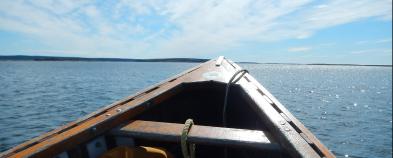
This project aims to carry out a comparative baseline analysis of the theory and practice of consultation, negotiation of consent (or the absence thereof) and agreements between local/indigenous actors, the state, and industrial companies in the three regions. The purpose of this analysis is to create a common understanding of the main processes that occur in societies throughout the Arctic when extractive industries advance to new indigenous areas. On this basis the project elaborates further on identifying the key achievements and also key problems in each of the three Arctic regions, each on one continent (Canada in North America, Norway/Finland in Europe, and Siberia in Asia). This baseline analysis shall create a common understanding of the key issues that partners from three regions can contribute to each other's experience in governing extractive industries on their territories, as well as the key issues that they can learn. The purpose is expressively to start a learning process about both the problems and the opportunities that the regulatory practices in each case has brought. This baseline comparison and exchange of experiences shall lead to a deeper comparative integration, and to a legal, anthropological and geographical comparative study to be selected by the academic and civil society partners in the team.

